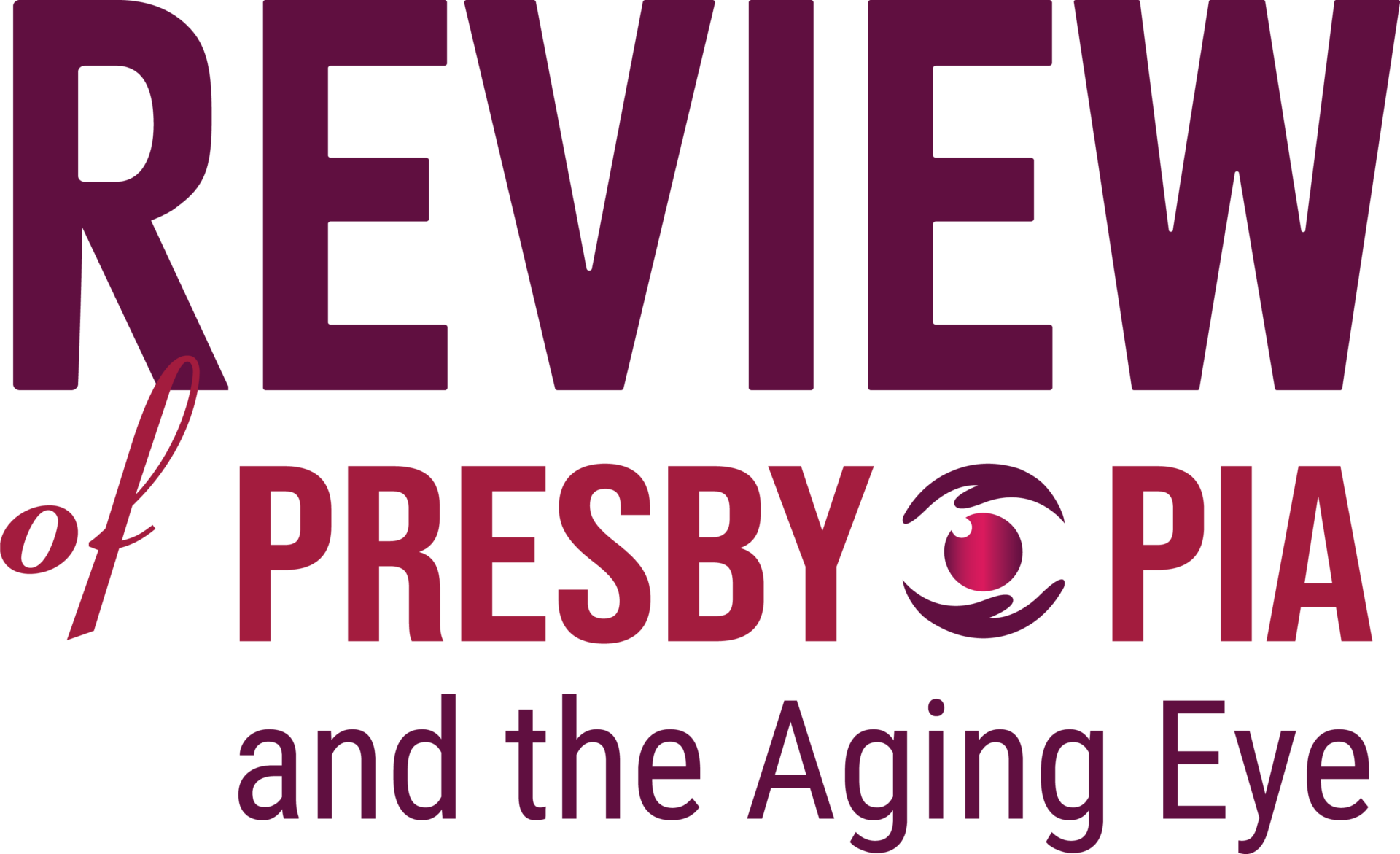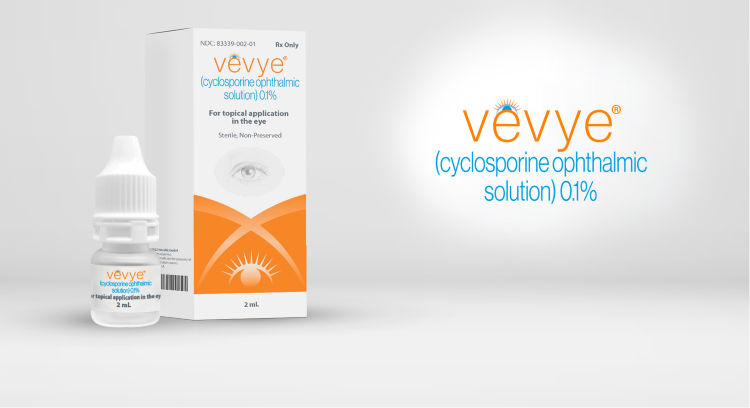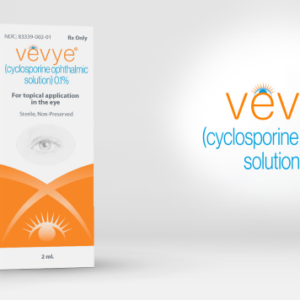June 8, 2023
HEIDELBERG, Germany and CAMBRIDGE, Mass.— Novaliq GmbH, has announced that the U.S. Food and Drug Administration (FDA) has approved VEVYE (cyclosporine ophthalmic solution) 0.1% for the treatment of the signs and symptoms of dry eye disease. VEVYE (development name CyclASol) is the first and only cyclosporine solution indicated for the treatment of signs and symptoms of dry eye disease with efficacy demonstrated after four weeks of treatment.
“We are proud that FDA approved VEVYE. The safety and efficacy of VEVYE were assessed in a total of 1,369 patients with dry eye disease, of which 738 received VEVYE. VEVYE and its novel vehicle were safe, well tolerated, and demonstrated early, consistent, and durable therapeutic effects,” said Sonja Krösser, PhD, Vice President Medical Science & Regulatory Affairs at Novaliq. “It is an exciting moment when you have followed science that finally led into a new category of water-free ocular therapies addressing unmet medical needs for patients suffering from dry eye disease.”
Dry eye disease (DED) affects millions of Americans and is one of the most common ocular surface disorders. A leading cause of DED is inflammation of the ocular surface. The chronic inflammatory nature causes progressive corneal surface damage that can lead to direct or indirect visual impairment.
VEVYE is cyclosporine, solubilized in a novel, water-free excipient and was designed to address unmet needs, providing patients with a fast-acting and well-tolerable dry eye drug therapy. The solution does not contain water or antimicrobial preservatives, oils, or surfactants. As a water-free product, there is no associated pH and no osmolarity. “VEVYE addresses the well-documented underlying inflammatory root cause of dry eye disease, repeatedly demonstrating early and clinically meaningful efficacy upon both signs and symptoms,” said John D. Sheppard, MD, MMSc, FACS, professor of ophthalmology at Eastern Virginia Medical School, and Mid-Atlantic Medical Director for Eye Care Partners and investigator in the development program. “The clinical trials consistently showed significant therapeutic improvements in ocular surface damage and associated symptoms, while pioneering visual function improvement analysis. VEVYE is an exceptionally well-tolerated formulation, combining a novel, first-in-class vehicular delivery system with by far the most established and safe topical active pharmaceutical ingredient, cyclosporine, providing a major advancement for our patients.”
“I am thrilled that a novel water-free, non-preserved pharmaceutical option for the treatment of the signs and symptoms of dry eye was approved by the FDA,” said Jade Coats OD, optometric physician at McDonald Eye Associates, Rogers, Ark., and member of the Intrepid Eye Society. “With the most potent commercially available cyclosporine 0.1%, VEVYE brings to the table excellent comfort and tolerability, fast onset of symptom relief, and a strategically effective drop size, providing patients and practitioners an additional anti-inflammatory, immunomodulating option for the treatment of dry eye disease.”
“The U.S. FDA approval of VEVYE marks a milestone for patients and caretakers by addressing a significant unmet need for millions of people suffering with this disease,” said Christian Roesky, PhD, CEO Novaliq. “With now two EyeSol-based and water-free dry eye drug therapies approved by FDA, Novaliq has established a novel category of non-aqueous, non-preserved ophthalmic drugs with the opportunity to become a standard of care in ophthalmology in the future. We will continue to execute on our mission to transform ocular therapies by developing breakthrough novel EyeSol therapies way beyond dry eye disease.”
Adverse Reactions and Clinical Trials Experience
Because clinical trials are conducted under widely varying conditions, adverse reaction rates observed in the clinical trials of a drug cannot be directly compared to rates in the clinical trials of another drug and may not reflect the rates observed in practice. In clinical trials with 738 subjects receiving at least one dose of VEVYE, the most common adverse reactions were instillation site reactions (8%) and temporary decreases in visual acuity (3%).





